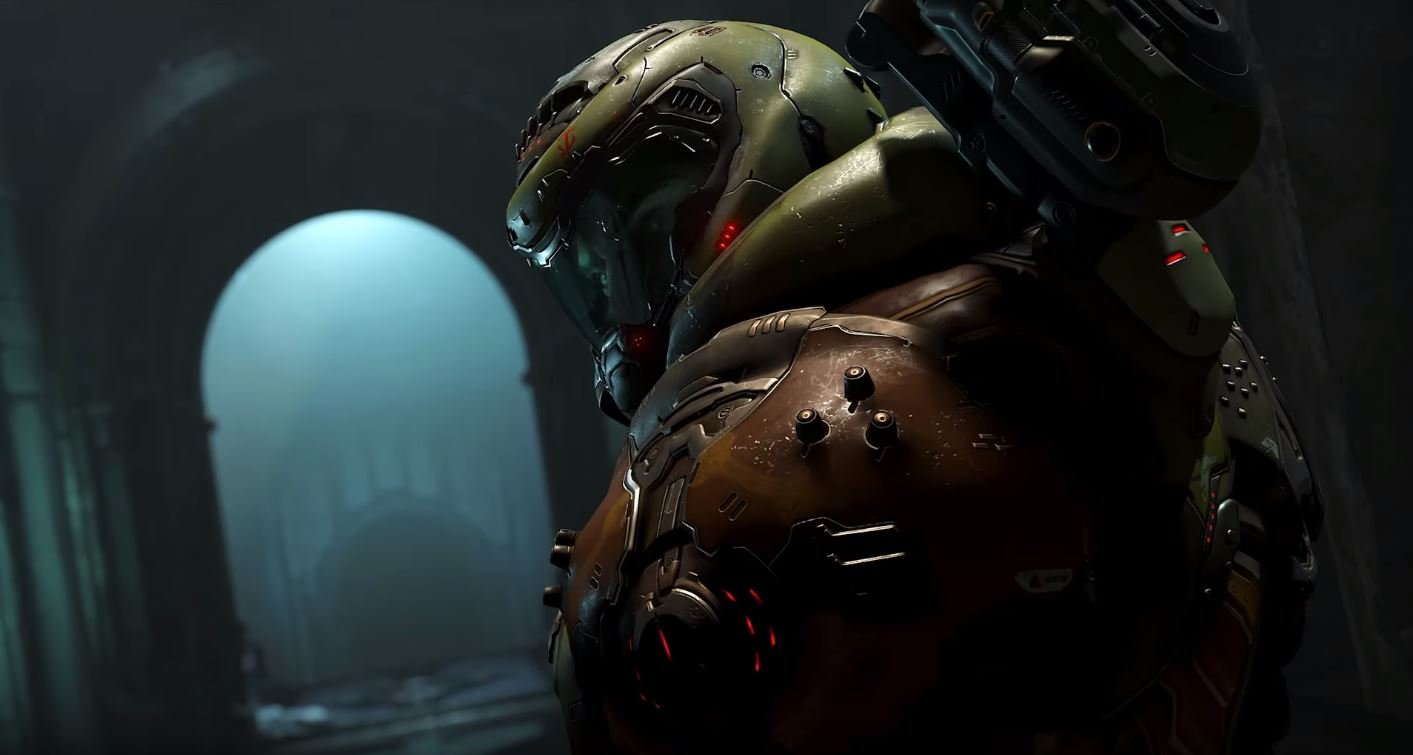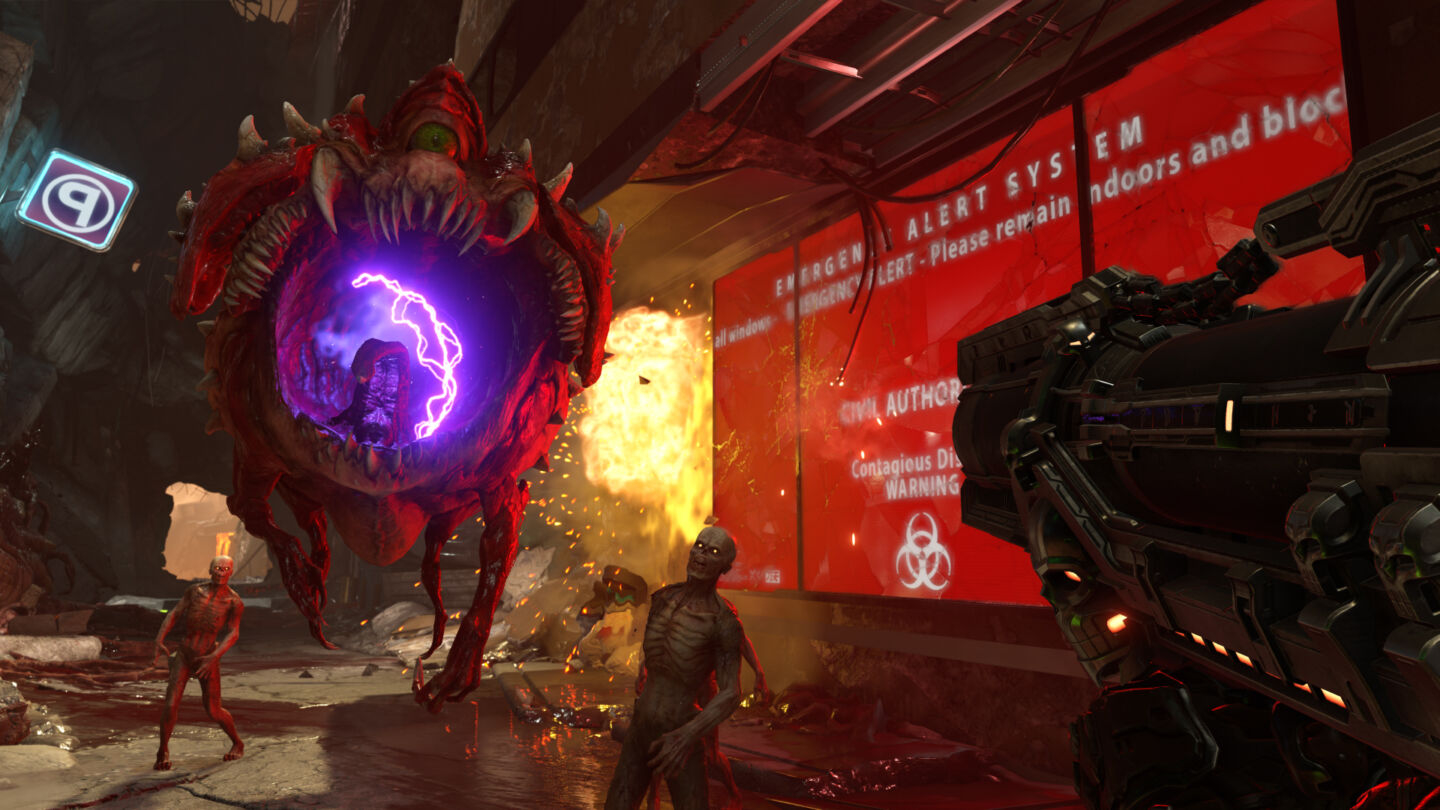A hot potato: Doom Eternal's Update 1 came with Denuvo anti-cheat, among other features, and has since landed the highly-praised game in quite a messy situation. Following last week's patch, the FPS has received over 4,700 negative reviews (and still counting) on Steam after players protested to adding the anti-cheat software, calling it spyware and a virus given the escalated privileges it has in the system's kernel.
Update (05/21/20): id Software has responded to PC gamers' concerns regarding Denuvo's controversial anti-cheat technology and performance issues caused by Doom Eternal's Update 1 patch.
Marty Stratton, the game's executive producer, revealed on Reddit that the anti-cheat technology would be removed in a new Update 1.1 patch expected to arrive for PC players within a week. He also dismissed the notion of any links between Denuvo's anti-cheat and the performance and stability issues that players have been complaining about, noting a code change for the game's VRAM allocation likely being the cause for these problems, alongside other fixes related to customizable skins and memory-related crashes.
He outlined several reasons for why the studio added the anti-cheat service in the first place, citing protection required for the game's Battlemode and upcoming Invasion mode, the effectiveness of kernel-level integrations against cheating as well as players' disappointment with Doom 2016's multiplayer after it was late to receive anti-cheat measures for protection.
He also quashed rumors of Bethesda enforcing this technology on the game, noting that id Software was driving these decisions based on the aforementioned factors and that any anti-cheat integrations in the future will be better aligned around player expectations.
Doom Eternal recently received its first major update, featuring supercharged 'Empowered Demons' in single-player mode and quality of life improvements to the overall game. There was also the inclusion of Denuvo anti-cheat, a kernel-level service that monitors multiplayer gameplay, similar to Riot's controversial 'Vanguard' software for Valorant.
While Riot made appropriate tweaks later on by letting players switch off Vanguard, Denuvo's anti-cheat patch for the hot-selling Doom Eternal has now landed the game in hot waters, both from a security and performance perspective.
Irdeto, the company behind Denuvo, responded to the backlash last week, noting that its anti-cheat software starts/stops with the game and that "actual monitoring" is only done during multiplayer matches.
Irdeto's response did little to address security concerns, and over the weekend, many players took to Reddit, YouTube, and other platforms to complain about the game's performance issues, with some reporting excessive frame drops, crashes and deleted save slots following Update 1.
Most players are linking these performance issues with Denuvo's anti-cheat system and have criticized the decision of tacking a controversial multiplayer feature onto a game played primarily for its single-player experience. A few have also questioned as to why a kernel-level anti-cheat service was added to the game post-launch and have been left frustrated by their attempts to get a refund.
ℹ️ The development team is investigating reports of crashes and performance issues for some PC users after applying Update 1 in @DOOM Eternal. We will provide additional information as soon as it is available.
--- Bethesda Support (@BethesdaSupport) May 17, 2020
Bethesda also took note of these concerns and recently tweeted a response, while Steam, once again, gave quite a clear picture of what happens when a publisher/developer upsets their audience with a controversial game update. Doom Eternal's Steam rating stood at a very healthy 90% before this update across recent and all-time reviews (the game's just two months old) and has since nosedived to below 50% in recent reviews.

There are rumors that a future update will address this issue by turning off Denuvo anti-cheat for the game's single-player, but it remains to be seen how Bethesda or id Software decide to tackle this problem.
Its not the first time that Doom Eternal and Denuvo have made the news together. Bethesda did an oopsie during the game's launch when it accidentally left out a DRM-free executable in the download package, letting players bypass Denuvo's anti-tampering checks in the process.
